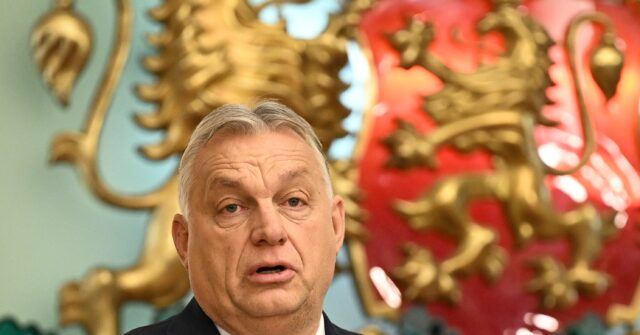In a recent interview with Hungarian public television, Prime Minister Viktor Orbán articulated what he describes as “irreconcilable differences” between Hungary and the European Union (EU), particularly concerning immigration and gender theory policies. Orbán expressed his firm stance against the imposition of EU rules on Hungary, citing the tragic Christmas market attack in Magdeburg, Germany, as a cautionary example of the potential consequences of unchecked immigration. He emphasized that Hungary will not allow itself to be transformed by such policies, likening the situation to letting in migrants who disrupt societal norms and values. By invoking the security concerns associated with immigration, he seeks to rally domestic support against EU directives and priorities he deems unsuitable for Hungary.
Orbán’s remarks coincide with a ruling from the European Court of Justice that imposed a hefty fine on Hungary for its non-compliance with EU immigration regulations. This fine, amounting to 200 million euros, along with an additional daily penalty, underscores the tension between national sovereignty and EU regulations. Rather than conceding to these pressures, Orbán has steadfastly rejected any attempts to modify Hungary’s migration and asylum policies, framing them as a matter of national interest that the EU should not dictate. This posture highlights a broader struggle within the EU regarding member states’ adherence to shared policies, especially on contentious issues like migration.
In addition to immigration, Orbán pointed to gender theory as another area of contention between Hungary and the EU. The Hungarian government has faced legal challenges for its refusal to permit gender-theory advocates in schools, which Orbán argues is outside the EU’s purview. He stood firm on the belief that such cultural and educational decisions should remain a national issue and expressed his intent to protect Hungary’s traditional values from what he perceives as intrusive foreign ideologies. This clash over gender-related policies illustrates deeper socio-cultural divisions within Europe, as countries grapple with rising populist sentiments and resistance to what some view as progressive agendas from Brussels.
Orbán’s comments also reflect a perception of shifting global political dynamics, fueled by the recent electoral victory of Donald Trump in the United States. He believes that Trump’s return to office will have a ripple effect globally, invigorating right-wing populist movements and reinvigorating traditionalist agendas across the Western world. Orbán argued that the EU, particularly under the current leadership, is trailing behind this wave of populism. By aligning himself with leaders like Trump, Orbán seeks to position Hungary as a leader in a new political order that prioritizes national sovereignty and traditional values over globalist agendas.
Support for Orbán’s vision was echoed by other Hungarian officials, such as Deputy Foreign Minister Levente Magyar, who has also expressed optimism regarding future U.S.-Hungarian relations under Trump’s leadership. He emphasized a shared perspective on various issues, including economic collaboration and strategies regarding the ongoing conflict between Ukraine and Russia. This alignment signals a potential shift in Hungary’s foreign policy as it seeks closer ties with a U.S. administration that mirrors its national convictions and policymaking approaches.
In summary, Orbán’s statements encapsulate a broader struggle within the EU regarding immigration, gender policy, and national sovereignty. His firm rejection of EU directives on these issues is indicative of a growing trend among certain member states to push back against what they perceive as overreach by Brussels. By positioning Hungary in solidarity with right-wing populist movements worldwide, particularly in the context of Trump’s political resurgence, Orbán aims to redefine Hungary’s role in a changing geopolitical landscape. This continuing conflict between national identity and European integration presents significant implications for both Hungary and the broader EU, as it navigates complex relationships among its member states amidst shifting global dynamics.

